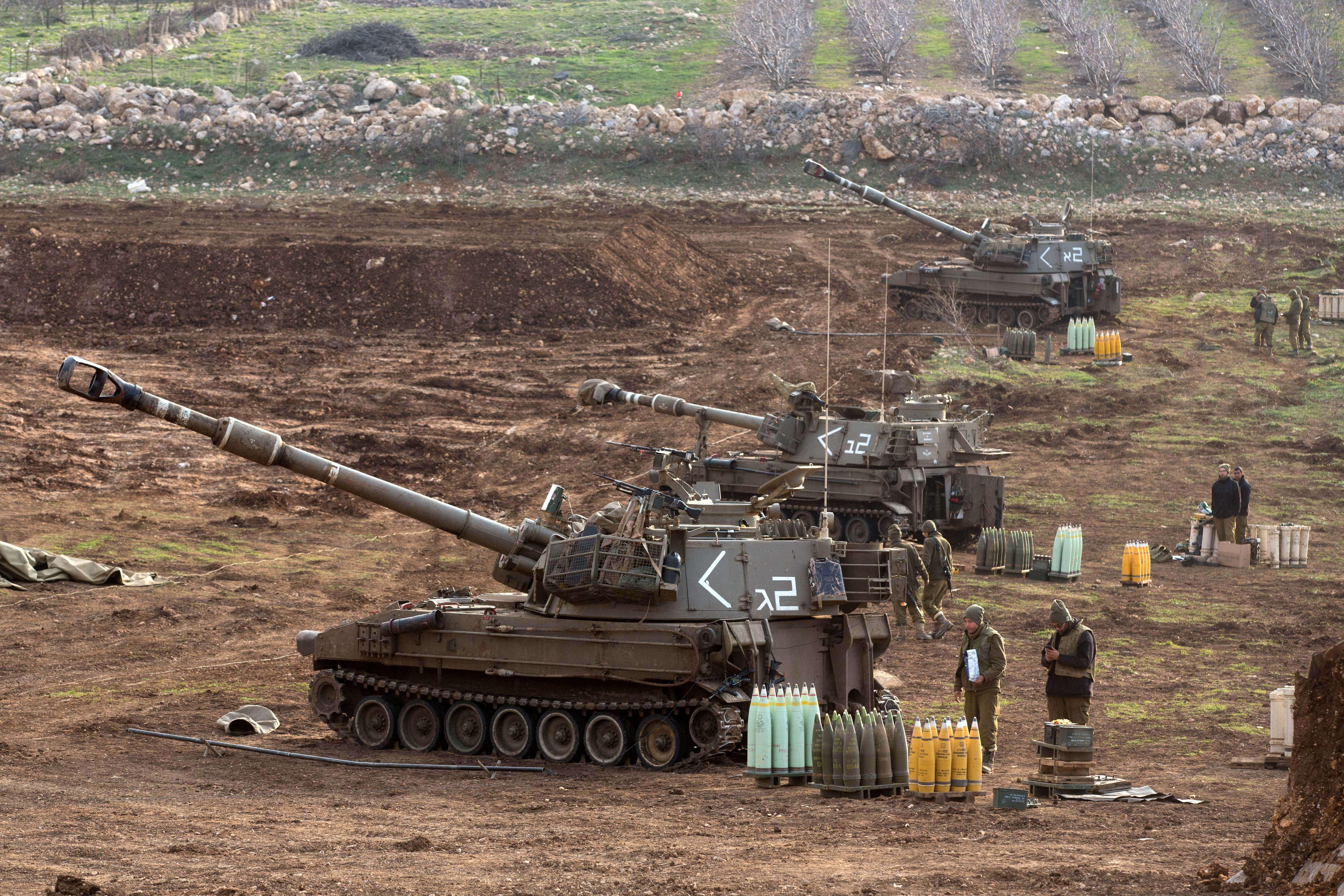Two Israeli soldiers and a Spanish U.N. peacekeeper were killed today on the Lebanese border in an exchange of fire between Israel and Hezbollah reminiscent of the opening days of the 2006 war. The escalation is also a sign that Israel is becoming gradually more embroiled in the violence in neighboring Syria.
The two sides had exchanged fire on Tuesday with no casualties reported. Today, Hezbollah fired anti-tank missiles at an Israeli convoy in Shebaa Farms, a disputed area near where Israel, Lebanon, and Syria meet, killing two soldiers and injuring seven others. Hezbollah also fired mortars at an Israeli military position near Mount Hermon in the Golan Heights. The Israeli military then retaliated with airstrikes against Hezbollah positions in southern Lebanon. The U.N. and Spanish government later confirmed that a member of the 10,000-troop UNIFIL peacekeeping force in southern Lebanon had been killed, though it’s not yet clear how it happened or who fired the shot. (Update, Jan. 28, 2:45 p.m: The Israel Defense Forces have now acknowledged that one of their mortars killed the peacekeeper.)
Hezbollah, the Iranian-backed Lebanese Shiite militia and political party that has also been fighting on behalf of Bashar al-Assad’s government in Syria, says its attack on the Israeli convoy today was in retaliation for a Jan. 18 Israeli airstrike that killed six of the group’s fighters as well as an Iranian general. Israeli Defense Minister Moshe Ya’alon today said that Israel is holding the Assad government responsible for Hezbollah rocket fire into Israel, including the attack that killed the two soldiers.
The frozen conflict in the Golan Heights, which has been occupied by Israel since 1967, has heated up during the Syrian civil war. The U.N. evacuated its peacekeepers from the Syrian side of the Golan Heights in September due to escalating violence.
Israel is officially neutral in the war but is believed to be providing aid to Syrian rebel groups fighting against Assad’s government and his Hezbollah allies, and Israeli planes have carried out several airstrikes against the Syrian military in retaliation for cross-border attacks.
Assad, for his part, has tried to play up the Israeli connection to the rebels, joking in a recent interview with Foreign Affairs, “How can you say that al-Qaida doesn’t have an air force? They have the Israeli air force.”
The Syrian war is a conundrum for Israel, pitting the devils it knows—Hezbollah and Assad, both backed by Iran—against one it doesn’t: Sunni extremist groups like ISIS and the al-Qaida-backed Jabhat al-Nusra. The U.S. government may be gradually coming around to the view that it’s worth leaving Assad in power and entering an unspoken alliance with Iran to fight ISIS, but that’s going to be a tougher pill to swallow for Israel, which sees a Syrian hand in attacks on Israeli soldiers and civilians and is loath to entertain any tacit deal with Iran.
As for Hezbollah, the group likely has no interest in a repeat of the bloody monthlong war of 2006, in which more than 1,700 people in Lebanon were killed, including between 600 and 800 Hezbollah fighters. The group would likely be even less equipped to handle a major Israeli offensive given the resources it has been pouring into Syria to defend its onetime patron Assad. So, beyond tit-for-tat rocket strikes, Hezbollah will likely avoid any actions that would provoke a major Israeli response.
However, these exchanges of violence have a way of spiraling beyond the original intentions of their initiators. Syria’s violence has already spread into Lebanon. Israel, which has so far mostly kept the carnage over the border at bay, may be getting pulled in deeper.
